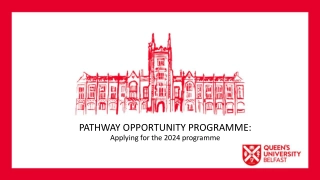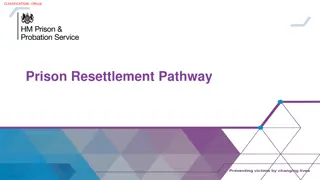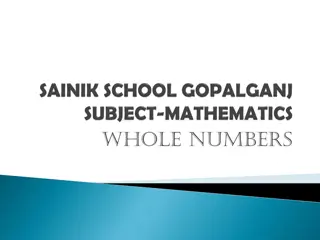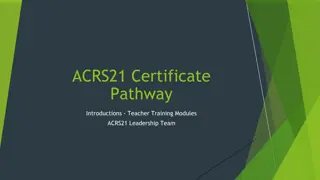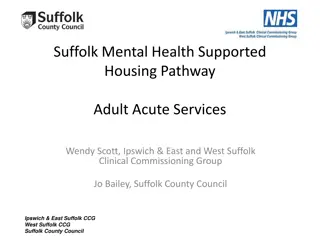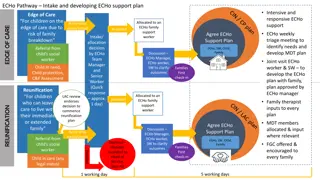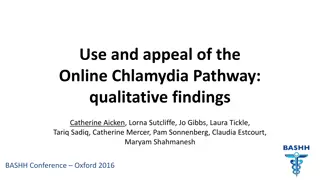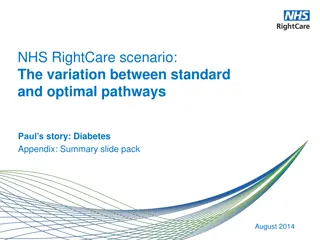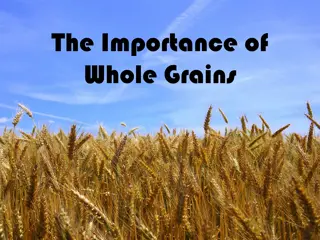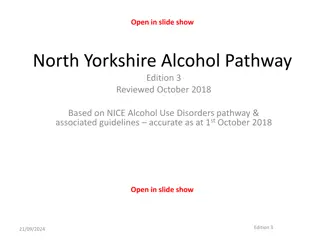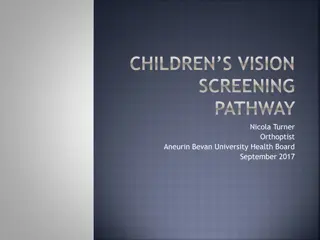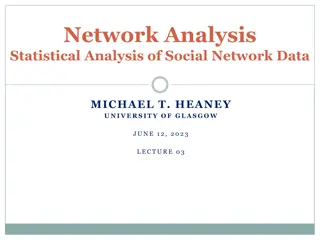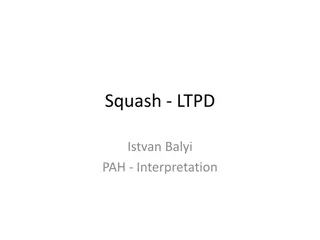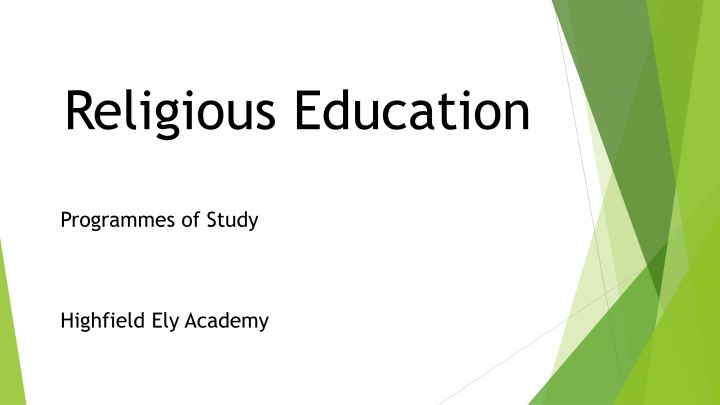
Religious Education Programmes and Themes for Highfield Ely Academy
Explore the comprehensive religious education programmes of study at Highfield Ely Academy, including themes for each year and suggestions on how to incorporate them into educational experiences. Delve into a structured approach to teaching various religions and fostering understanding and awareness among students.
Download Presentation

Please find below an Image/Link to download the presentation.
The content on the website is provided AS IS for your information and personal use only. It may not be sold, licensed, or shared on other websites without obtaining consent from the author. If you encounter any issues during the download, it is possible that the publisher has removed the file from their server.
You are allowed to download the files provided on this website for personal or commercial use, subject to the condition that they are used lawfully. All files are the property of their respective owners.
The content on the website is provided AS IS for your information and personal use only. It may not be sold, licensed, or shared on other websites without obtaining consent from the author.
E N D
Presentation Transcript
Religious Education Programmes of Study Highfield Ely Academy
Religious Education Programmes of Study Blue Pathway- Themes for each year of the 5 year rolling programme with suggestions about how these might be incorporated into experiences and routines Green rolling programme. Each theme to be taught over one half term. Themes have specific religions to consider within these. - Secondary- Two themes to be taught and considered per year, content is linked to the 5 year rolling programme . Each theme to be taught over one half term. Themes have specific religions to consider within these. Themes build on knowledge and experiences from the primary programme. - Uppers- Two themes to be taught and considered per year, content is arranged in a 3 year rolling programme. Each theme to be taught over one half term. Themes have specific religions to consider within these. Themes are similar to uppers yellow programme in order to allow for shared experiences. - Primary- Two themes to be taught and considered per year, content is linked to the 5 year Yellow view being considered over the year. Content is arranged in a 3 year rolling programme. - Uppers- Two themes to be taught and considered per year, content is arranged in a 3 year rolling programme. Each theme to be taught over one half term. Themes have specific religions to consider within these. Themes are similar to uppers green pathway in order to allow for shared experiences. - Secondary- Themes to be taught every half term with all major world religions and a non secular
Blue pathway teaching content and ideas Year 1 (2023-24) Year 2 (2024-25) Year 3 (2025-26) Year 4 (2026-27) Year 5 (2027-28) Content Beliefs within in our families, homes and communities People, items and ideas that are important to us Becoming aware of ourselves and how we feel Experiencing and noticing similarities and differenc es Feeling safe and belonging to a family/ community. What ideas might be considered within this theme? Where do I live? Who do I live with? What experiences are the same as ones I have with my family? What new experiences have I been part of and what did I enjoy? Who is in our family? Who is in our class? What do I like? What do others like? How do I feel? Where am I? How do others around me feel? What happens to my body when I feel different emotions? How does it feel to be relaxed, excited, worried, tired, sick, content and sad? Noticing and naming (in accessible ways) emotional states to pupils and exploring why with pupil and class team. Offering and naming experiences that might make pupils feel other emotions e.g. novel experiences that might create surprise or familiar experiences that might support calmness. Using teaching sessions to explore body awareness, supporting pupils to know where they are and what their body is doing e.g. tacpac, massage sessions, hydrotherapy, physio sessions, singing sessions. How do I respond to repeated experiences? How do I respond to different experiences? Can I choose things I know and have experience of? What have others around me chose? Offering choices and noticing patterns in choice making or responses to choices. Choices could include, items, people and places Group times to build awareness of others. Naming choices made by others Exploring music, artefacts, noises, smells and food linked to religions and noting and naming student responses, drawing attention to things that are the same or are similar. Using teaching sessions to offer similar items/ experiences around favoured themes e.g. farmyard, Christmas, green, drums etc. this could be through sensory stories, open ended sensory exploration, singing, sound bar, soundbaths. Who is in our class/ school? Who are my friends? Who lives with me? What social experiences, communities, clubs am I part of? How might this be taught? Reflecting on taxi time, using multi-sensory materials to think about where they are going/ coming from. Using adapted songs and stories to explore home. Exploring known family celebrations in school with similar materials e.g. birthday, Christmas or other religious celebrations Exploring other religious beliefs through soundbaths, sensory stories, songs and open-ended sensory exploration e.g. food, religious artefacts, clothing, sounds. Exploring family and class members in multi-sensory ways e.g. photos, videos, sounds, clothing. Using songs and adapted sensory stories personalized to reflect students lives e.g. he's got the whole word in his hands with family members, stories about my class. Offering choices and repeating favoured ones, drawing students attention to important items and choices made. Exploring items and experiences that are important to others e.g. listening to Hindu music whilst handling Hindu clothing or artefacts. Exploring family, friends and class members in multi-sensory ways e.g. photos, videos, sounds, clothing. Exploring who lives with pupil including regular respite contact. Representing key members and places within students lives in ways they can access e.g. items, audio clips, videos, photos etc. Offering and supporting pupils to be part of social experiences and building awareness of others alongside them through group dance, singing, circle times, hanging out approach etc. Supporting pupils to be part of group celebrations and reflecting home celebrations in class through food, photos, videos, clothing etc.
Religious Education (RE) teaching plan for green primary pathway students. RE is Religious Education (RE) teaching plan for green primary pathway students. RE is taught over 2 half terms each year. taught over 2 half terms each year. Year 1 (2023-24) Autumn, term 2 Home Year 2 (2024-25) Autumn, term 1 Celebrations Year 3 (2025-26) Spring, term 3 Fabulous food Term and Topic theme RE theme and possible teaching points Beliefs What standards and beliefs are important in our homes/ families/ communities? Celebrating How do you celebrate achievements and milestones? Challenges What does it mean to give up something or take on something new? How can this help us to be mindful? Hinduism- Diwali, who celebrated this, why and how Christianity- The Christmas story, what is Christmas, how is it celebrated and why is it important Hinduism and Christianity Judaism- Rosh Hashanah and Shabbat Christianity- Baptism Food within religion Christianity- Pancake day and lent Islam- Ramadan Judaism- Purim Christianity, Islam and Judaism Religions to be studied Term and topic theme Judaism and Christianity Summer, term 5 Animal Kingdom Places What places are important to your family/ friends and community and why are these important? Spring, term 3 Green Fingers The environment Why is our environment important and how do we look after it? Summer, term 5 Wonderful water Rituals How do rituals help us to celebrate and remember? RE theme and possible teaching points Buddhism- We are connected to our environment. The Dalai lama promotes climate change awareness Humanism- We should look after each other and the environment Water rituals Christianity- Baptism Hinduism- Cleansing, coming together, praying for rain. Buddhism- Washing elders at new year Places of worship, what are these, what happens in them Christianity- Church with possible church or cathedral visit Sikhism- Gurdwara Christianity and Sikhism Religions to be studied Humanism and Buddhism Christianity, Hinduism and Buddhism
Religious Education (RE) teaching plan for green primary pathway students. RE is Religious Education (RE) teaching plan for green primary pathway students. RE is taught over 2 half terms each year. taught over 2 half terms each year. Year 4 (2026-27) Autumn, term 2 Once upon a time Year 5 (2027-28) Autumn, term 2 Travel through time Term and Topic theme RE theme and possible teaching points How do we show people we care? Why are friends and family important? New life rituals Humanism- Looking after people, being kind and helpful Sikhism- Reincarnation and naming ceremony (Naam Karan) Christianity- 12 disciples, David and Johnathan becoming friends, Peter denying Jesus and Jesus forgiving Peter Hinduism- Rama and Sita linked to Diwali Buddhism- The wind and the moon. Religions to be studied Humanism and Sikhism Christianity, Hinduism and Buddhism Term and topic theme Summer, term 5 Around the world Summer, term 6 Environment RE theme and possible teaching points How are we different/ the same as other people from around the world and people with different beliefs? Judaism- Places of worship and key beliefs Islam- Place of worship, key beliefs and rituals Place of worship and key beliefs Why is our environment importantand how do we look after it? Humanism- We should look after out environment and each other Islam- Qur'an teaches about environmentalism and not wasting resources. Religions to be studied Judaism, Islam and Christianity Humanism and Islam
Religious Education (RE) teaching plan for green secondary pathway students. RE is Religious Education (RE) teaching plan for green secondary pathway students. RE is taught over 2 half terms each year. taught over 2 half terms each year. Year 1 (2023-24) Year 2 (2024-25) Year 3 (2025-26) Term and Topic theme RE theme and possible teaching points Autumn, term 2 Home RE- Big question- what standards and beliefs are important in our homes/ families/ communities? What does it mean to belong to a community? Autumn, term 1 Celebrations RE- Big Question- who is important in your life? How do you celebrate them? How is new life or aging celebrated? Spring, term 3 Fabulous food RE- Big Question- What does it mean to give up something or take on something new? How can this help us to be mindful? Consider being part of a class and the school, think about school values and ethos. Hinduism- Brahman- three forms- Brahma, Vishnu, Shiva Christianity-One God, Jesus and the commandments Islam- 5 pillars of Islam Consider new life within families and community- human and animals. Importance of your name. Judaism- Bat and Brit Mitzvah Christianity- Confirmation Consider promises we make to ourselves and how we reflect on our decisions and actions. Buddhism- Meditation Islam- 5 daily prayers to focus thoughts Judaism- 13 principles, Jewish prayer book- Siddur. Hinduism, Islam and Christianity Judaism and Christianity Buddhism. Islam and Judaism Religions to be studied Term and topic theme RE theme and possible teaching points Summer, term 5 Animal Kingdom RE- Big Question- What places are important to your family/ friends and community and why are these important? Spring, term 3 Green Fingers RE- Big Question- Why is our environment important and how do we look after it? How can we make a difference? Summer, term 5 Wonderful water RE- Big Question- How do rituals help us to celebrate and remember? What rituals do you take part in with our families, how do these make you feel? Students to think about what makes a place special. Sikhism- Gurdwara Christianity- Church or cathedral with physical or virtual trip to church Buddhism- Temple Consider environmental change and reflect on small actions to make a big difference. Humanism- The starfish story written by a humanist- we can all make a difference (Make a difference day) Buddhism- 5 precepts including all life forms are special, therefore protecting habitats is important. Consider celebrations pupils are part of at home and in school. What actions are associated with these? Christianity- Baptism, new start, welcoming into faith Hinduism- Holi, marking the arrival of Spring Islam- Prayer rituals Christianity, Buddhism and Sikhism Humanism and Buddhism Christianity, Hinduism and Islam Religions to be studied
Religious Education (RE) teaching plan for green secondary pathway students. RE is Religious Education (RE) teaching plan for green secondary pathway students. RE is taught over 2 half terms each year. taught over 2 half terms each year. Year 4 (2026-27) Year 5 (2027-28) Term and Topic theme Autumn, term 2 Once upon a time RE- Big Question- How do we show people we care? What is a commitment/ promise? Autumn, term 2 Travel through time RE theme and possible teaching points RE- Big Question- Why are friends, family and partners important? Consider who is important within family, friends and community. What do we like about them? Christianity- God parents guiding children's way Hinduism- Living as extended families, taking care of each other Buddhism- Sangha, monastic communities of monks and nuns Consider how we treat people we love. What promise could we make to them. Humanism- Raksha Bandan, celebrating family Sikhism- Seva- helping those in need, weekly meals for others (Langar) Hinduism- Dana (generosity or giving to charity) Seva (helping others) Humanism, Sikhism and Hinduism Religions to be studied Christianity, Hinduism and Buddhism Term and topic theme Summer, term 5 Around the world RE- How are we different/ the same as people around the world and with different beliefs? Summer, term 6 Environment RE theme and possible teaching points RE- Big Question- Why is our environment important and how do we look after it? Consider similarities within class and then differences, starting with physical before moving to abstract such likes/ dislikes or beliefs. Judaism- Believe in one God and promise to follow God s laws Sikhism- Believe in one God and we should be honest, care for others and contribute to our community Christianity- Believe in one God. God loves everyone, to get closer to God Christians should pray and live according to Bible teachings. Consider our local environment and then wider environment. What does it need, how can we keep it healthy? Humanism- We are part of nature and need to take action against global warming. Islam- Amanah- Humans are trusted to look after the planet. Religions to be studied Judaism, Sikhism and Christianity Humanism and Islam
Religious Education (RE) teaching plan for Uppers students following a green pathway. Religious Education (RE) teaching plan for Uppers students following a green pathway. RE is taught over 2 half terms each year. RE is taught over 2 half terms each year. Year 1 Year 2 Year 3 Autumn term 1 Beliefs and Values Spring term 1 Celebrations Autumn term 2 Religious stories Term RE theme and possible teaching points What do I believe, what does my family believe, what do the people around me believe? Why is this important? Making comparisons to religious and worldviews What are the key celebrations within different religions and world views starting with celebrations I know/ have been part of Religious stories and their meanings- Reflecting on the meaning behind different religious stories Christianity- The good Samaritan Buddhism- The Monkey King Judaism- The Story of Moses Opportunity to reflect on what the moral of these stories are, what can we learn from them. Starting with familiar celebrations at home and in school before considering Christianity- Lent and Easter Islam- Ramadan Hinduism- Holi Opportunity for reflecting on how being together and celebrating with a group helps us to feel love and belonging. Christianity, Islam and Hinduism Overview of key beliefs in religions below. How are these different and the same? Opportunity for reflecting on personal key beliefs e.g. I try to be (kind, helpful, funny, honest) Christianity, Buddhism and Hinduism Christianity, Buddhism and Judaism Religions to be studied Term and topic theme RE theme and possible teaching points Summer term 1 Summer term 1 Summer term 1 Kindness and peacefulness Food in religion New life and end of life rituals How do religions encourage kindness and peaceful relationships? Why is food important in different religions? What part does food play in celebrations and rituals? How is life celebrated? New life and end of life within different religions Humanism- Treat others how you want to be treated Christianity- 10 commandments Sikhism- Helping others through Seva Opportunity for reflecting on how communities and others can help us to be kinder. What food helps students celebrate at home? Christianity- Bread and wine in church Judaism- Shabbat dinner (Friday night), Challah bread Hinduism- Langar- making food for others every week. Sikh foods include Roti (brown flat bread) Opportunity for reflecting on how food can help us to be together and think about the past. Christianity, Judaism and Sikhism Christianity- Baptism and funerals, life after death Humanism- One life with no afterlife Islam- Aqiqah and Life after death- day of judgement Opportunity for students to think about what they believe in terms of life after death or how to welcome new life (new people) into a community. Humanism, Christianity and Sikhism Christianity, Humanism, Islam Religions to be studied
Religious Education (RE) teaching plan for Secondary students following a yellow Religious Education (RE) teaching plan for Secondary students following a yellow pathway. A new RE topic is taught every half term. Students will study all 6 major pathway. A new RE topic is taught every half term. Students will study all 6 major world religions and a non secular belief system during the year world religions and a non secular belief system during the year Yellow Pathw ay Year 1 Autumn 1 Autumn 2 Spring 1 Spring 2 Summer 1 Summer 2 Creation Places of worship Festivals Food within religion Symbols Stories RE Big Question- How did life on earth begin? RE Big Question - In what way do special places help people to feel connected to God? RE Big Question - How are important moments celebrated in different religions? RE Big Question- How does food connect people to God? RE Big Question - How can God and religions be represented? RE Big Question - How do stories help religions communicate their beliefs? Belief systems to consider- Humanism, Christianity, Islam Belief systems to consider- Sikhism, Judaism, Hinduism Belief systems to consider- Christianity, Hinduism, Buddhism Belief systems to consider- Sikhism, Judaism, Christianity Belief systems to consider- Christianity, Buddhism, Humanism Ideas- Consider the cross, dharma wheel and the happy human symbol. What are the histories and meaning of these? What are students values, how could this be represented in a symbol? Belief systems to consider- Islam, Hinduism, Christianity Ideas- Research creation stories and theories including the big bang. Consider if the religious stories are literal or symbolic? Ideas- Consider the importance shabbat and Kosher foods in Judaism, langar and Vaisakhi in Sikhism, prasada (food offerings) and Holi in Hinduism. What role does food play in religion and then at important events in students lives? (historical, remembrance, community, nourishing) Ideas- Research places of worship, look at similarities and differences. What are the key features and rituals? How and why do people pray or meditate? Consider what students do to help themselves to feel calm and loved? Ideas- Consider festivals of Vaisakhi, Easter and Passover. Look at similarities e.g. coming together, food, stories and differences. Consider why the rituals and actions are important, what do they represent. How di students celebrate important moments and why? Ideas- Consider the story of the prophet Adam (Islam), Holika and Prahlad (Hinduism) and the parable of the prodigal son (Christianity). What are the meanings behind these stories?
Religious Education (RE) teaching plan for Secondary students following a yellow Religious Education (RE) teaching plan for Secondary students following a yellow pathway. A new RE topic is taught every half term. pathway. A new RE topic is taught every half term. Yellow Pathway Year 2 Autumn 1 Autumn 2 Spring 1 Spring 2 Summer 1 Summer 2 People of Faith Christmas Relating to each other Journeys God versus science How do we care for our world RE Big Question-What religious people inspire you and your life choices? RE Big Question-What is the real message of Christmas? RE Big Question- How should we treat one another? RE Big Question- Why do people make pilgrimages and religious journeys? RE Big Question- Can God and scientific beliefs exist together? RE Big Question-How do religious beliefs help inspire us to care for the planet? Belief systems to consider- Christianity, Hinduism Belief systems to consider- Judaism, Humanism, Sikhism Belief systems to consider- Humanism, Islam, Christianity Belief systems to consider- Islam, Christianity, Buddhism Belief systems to consider- Humanism, Islam, Christianity Belief systems to consider- Hinduism, Sikhism, Judaism Ideas- Explore history of Christmas, how it is celebrated around the world? Christmas central belief is love and salvation. Compare beliefs with Holi, the Hindu festival of love. How could you celebrate love and being loved? Ideas- Ten commandments from Torah, golden rule of humanism, Sikh charitable work. What are your values, how do you show these in your life? Ideas- How do these beliefs differ? Can they co-exist? Consider religious scientists such as Isaac Newton, Charles Darwin and Abdus Salem. Consider creation, miracles and life after death. Does it matter if religious stories aren t literally true? Ideas- Hajj (Islam), Lourdes (Christianity), Bodh Gaya (Buddhism). Why are these sites sacred? Where do you meet others to be part of a community/ family? Where is your special place and why? Ideas- Greta Thunberg (humanism), Malala Yousef (Islam), Martin Luther King (Christian). What are your personal values? Who inspires you and why? Ideas- Sikh teachings about environment, Sanskriti (Hinduism), God created the world and we must care for it (Judaism). What actions can we take to look after our environment?
Religious Education (RE) teaching plan for Secondary students following a yellow Religious Education (RE) teaching plan for Secondary students following a yellow pathway. A new RE topic is taught every half term. pathway. A new RE topic is taught every half term. Yellow Pathw ay Year 3 Autumn 1 Autumn 2 Spring 1 Spring 2 Summer 1 Summer 2 Relationships and families Light Social justice in the world Suffering Local beliefs Religious origins RE Big Question- What can worldviews tell us about families, marriage and divorce? RE Big Question- Why is light important within religions? RE Big Question- How do different worldviews help us to understand social injustice? RE Big Question Why does suffering exist if God is all powerful? RE Big Question- What does belief look like in Cambridgeshire? What religious buildings are in Cambridgeshire RE Big Question- How did religion begin? Belief systems to consider- Hinduism, Judaism, humanism and Sikhism Belief systems to consider- Hinduism, Buddhism and Christianity Belief systems to consider- Christianity, Buddhism, Sikhism Belief systems to consider- Judaism, Islam, Sikhism Belief systems to consider- Humanism, Christianity, Sikhism Belief systems to consider- Buddhism, Islam, atheism and agnosticism Ideas- Ancient religions- Hinduism and Judaism, Newer religions (13th/ 14th century) Humanism and Sikhism. Students could consider Jedi religion. Consider starting points for religions and belief systems. Students to consider what their most important beliefs and values are, do these align with a current religion? Ideas- Explore Jewish wedding, Nikah (Islamic marriage ceremony), and Anand Karaj (Sikh marriage ceremony). Consider views on same sex marriage and divorce. Reflect on how students can show their love for others. Ideas- Consider Diwali, candles, meditation and metaphorical light. Light drives out darkness, people can be the light for others. Students to reflect on what makes their inner light shine, what brings them calmness, contentment and peace. Ideas- Christianity- God has a plan, humans should trust him. Buddhism- Following the 8 fold path can end suffering. How do religions explain suffering and the purpose of it? Sikhism- Suffering is allowed as a test of faith. Students to consider actions they can take to lessen suffering (small actions to friend or wider action. Ideas- Equal rights, war, hunger, refugees etc. Humanism- treating others how we want to be treated, Christianity- spreading love, kindness and Gods message, Sikhism- war only as a last resort. Students to consider their viewpoints and actions on social justice points. Ideas- What religions and worldviews are represented in Cambs, what are their main beliefs or ideas? Research religions recorded on census for Cambs and then places of worship. Research having no religious beliefs. Students to consider whether this is appropriate religious/ non religious provision.
Religious Education (RE) teaching plan for Uppers students following a yellow pathway. RE is taught Religious Education (RE) teaching plan for Uppers students following a yellow pathway. RE is taught over 2 half terms each year. over 2 half terms each year. Year 1 Year 2 Year 3 Autumn term 1 Beliefs and Values How do my beliefs shape who I am? What are my key principles, do these match with some religious principles? Spring term 1 Celebrations What are the features of a Christian, Islamic and Sikh celebration? What are they celebrating and how are they celebrating? Autumn term 2 Religious stories Consider a key Buddhist, Sikhism and Jewish story? Did these really happen? What is their message? Term RE theme and possible teaching points Religious stories and their meanings- Reflecting on the meaning behind different religious stories Overview of key beliefs in religions below. How are these different and the same? Opportunity for reflecting on personal key beliefs e.g. I try to be (kind, helpful, funny, honest). Do these match to religious beliefs? Starting with familiar celebrations at home and in school before considering Christianity- Lent and Easter Islam- Ramadan Sikhism- Opportunity for reflecting on how being together and celebrating with a group helps us to feel love and belonging. Christianity, Islam and Hinduism Sikhism- The crocodile and the priest Buddhism- The Monkey King Judaism- The Story of Moses Christianity, Buddhism and Hinduism Christianity, Buddhism and Judaism Religions to be studied Term and topic theme RE theme and possible teaching points Summer term 1 Summer term 1 Summer term 1 Kindness and Peacefulness What do religions teach us about friendships and relationships? How do religions say we should treat each other? Food in religion Harvest in different religions, sharing food and rituals with food. What is the purpose of these rituals? New life and end of life rituals How is new life celebrated? What happens when we die? What food helps students celebrate at home? Christianity- Bread and wine in church Judaism- Shabbat dinner (Friday night), Challah bread Hinduism- Langar- making food for others every week. Sikh foods include Roti (brown flat bread) Opportunity for reflecting on how food and rituals can help us to be together and think about the past. Christianity, Judaism and Hinduism Christianity- Baptism, funeral and then afterlife Humanism- One life, no afterlife Islam- Aqiqah- new life ceremony. Afterlife accessed after day of judgement. Humanism- Treat others how you want to be treated Christianity- 10 commandments Sikhism- Helping others through Seva Opportunity for reflecting on how communities and others can help us to be kinder. What actions can we take to honor relationships? Humanism, Christianity and Sikhism Christianity, Humanism, Islam Religions to be studied

